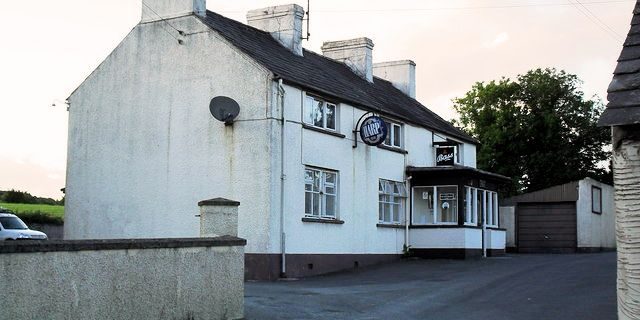PRESS RELEASE BY HARTE COYLE COLLINS, SOLICITORS
US Reporters Committee for Freedom of Press supports ‘No Stone Unturned’ filmmakers’ Trevor Birney & Barry McCaffrey High Court search warrant Challenge
The Reporters Committee for Freedom of the Press is calling on the Belfast High Court in Northern Ireland to find the police raids of filmmakers’ homes and office unlawful
The Reporters Committee for Freedom of the Press and a coalition of 20 U.S. media organizations are supporting a court challenge to the search of documentary filmmakers Trevor Birney and Barry McCaffrey’s homes, and Birney’s office, in connection with the alleged “theft” of an unpublished draft of a government report. The report was sent to them anonymously and featured in their film “No Stone Unturned.”
The coalition of supporters for Northern Ireland journalists and investigative reporters Trevor Birney and Barry McCaffrey, includes The New York Times Company, The Associated Press (AP), Reporters Without Borders, The International Documentary Association, The Committee to Protect Journalists, the Freedom of the Press Foundation and the Society of Professional Journalists amongst others.
In the case, currently before the Queen’s Bench Division in the High Court of Justice in Northern Ireland, Birney, McCaffrey and Fine Point Films argue that the court should recognize that the search warrants were unlawful and improperly executed. During the raid, the police confiscated “millions of documents,” according to Birney’s court papers, about numerous investigations for other projects, potentially endangering confidential sources unrelated to the film.
The Reporters Committee filed a brief on May 16, following the court’s decision granting the organization intervener status, arguing that the police’s actions would “present a clear-cut First Amendment violation” under U.S. law. The High Court challenge is listed for hearing before a 2 judge court for 3 days from the 28th to 31st May 2019. The Intervener brief filed on behalf of the Reporters Committee by Patricia Coyle, Solicitor states;
“The un-redacted report on the Loughinisland massacre is squarely a matter of public interest and, indeed, is suggestive of police misconduct,” the brief reads. “Leaks about government waste, mismanagement, fraud and, crucially, illegality, are precisely the types of unauthorized disclosure protected by the U.S. Constitution and whistleblower laws.”
The search and arrest came nearly one year after the initial New York premiere of “No Stone Unturned,” which features the leaked report in its probe of the unresolved 1994 Loughinisland or “World Cup” massacre in Northern Ireland. The film identifies the likely suspects and reveals a possible cover-up by police. The officers that searched and arrested the filmmakers included some from the police force that succeeded the Royal Ulster Constabulary, the main Northern Irish police force until 2001 and the primary agency criticized in the film.
The Reporters Committee also highlighted the case’s broader implications: without the court’s intervention, according to the brief, “the police’s actions in this case may chill future investigative reporting on misconduct by law enforcement — a matter of paramount importance to the public — and impact journalists even outside the United Kingdom.”
In addition to Birney and McCaffrey, Academy Award-winning documentarian Alex Gibney, the film’s U.S.-based director and a Reporters Committee board member, has been informed that he is a “suspect” in the case and could be arrested if he enters the United Kingdom.
Fine Point Films and Birney claim that the police’s actions violated both U.K. law and Article 10 of the European Convention on Human Rights, which affords broad protections for free expression. The Reporters Committee brief draws on American press freedom principles, emphasizing U.S. cases that have established confidential sourcing protections and prohibitions against searches and seizures of a journalist’s work product.
The Reporters Committee also emphasized the ruling in Bartnicki v. Vopper, a Supreme Court case that recognized protections for news organizations from liability for publishing truthful information of public importance that they had obtained lawfully, even if the information had been initially acquired unlawfully.
“Some of the most impactful national security stories of the past 50 years would not have been possible were it not for robust legal protections for the publication of information that has been lawfully acquired by a news organization but may have been disclosed illegally by a whistleblower or other source,” the brief affirms.
The Reporters Committee is represented by solicitor Patricia Coyle of Harte Coyle Collins, Solicitors & Advocates, Belfast and Barrister Eamonn Dornan BL.
Contact;
Patricia Coyle
Harte Coyle Collins
9-15 Queen Street
Belfast
BT1 6EA
02890 278227








